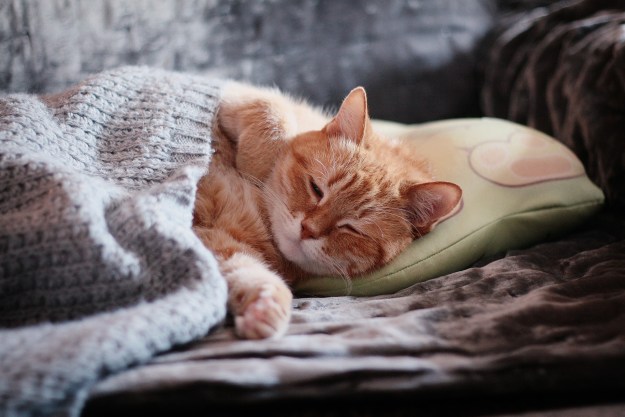Rabies is zoonotic, which means it’s transmissible to humans. Rabies is a terrifying viral disease, and it’s essential to be aware of how it spreads and its symptoms, especially when you have pets. Cats can absolutely get rabies if they’re not vaccinated, and that transmission can occur if a rabid animal bites your cat.
Unfortunately, there’s no treatment for pets, but a vaccine can offer protection. Familiarizing yourself with the signs of rabies in cats can help you quickly spot if something is amiss with a cat you encounter, so you know to be sure to keep your distance.
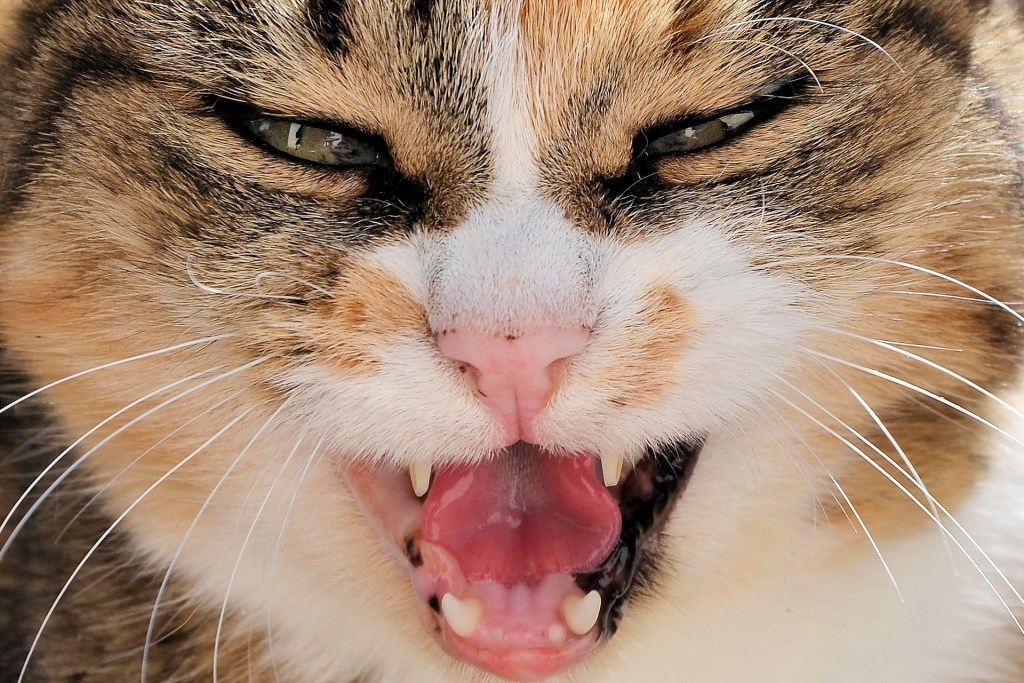
What is rabies?
According to the Centers for Disease Control (CDC), rabies is a virus typically transmitted when an infected animal bites a human or another animal. Usually, these animals are wild, unvaccinated animals. Rabies is progressive and affects the central nervous system, eventually resulting in death.
Cats can get rabies if an infected animal bites them. Once a cat is infected, it can pass rabies on to you if it bites you. While there’s no cure for rabies, there is an easy way to protect your cat: Keep his rabies vaccination up to date.
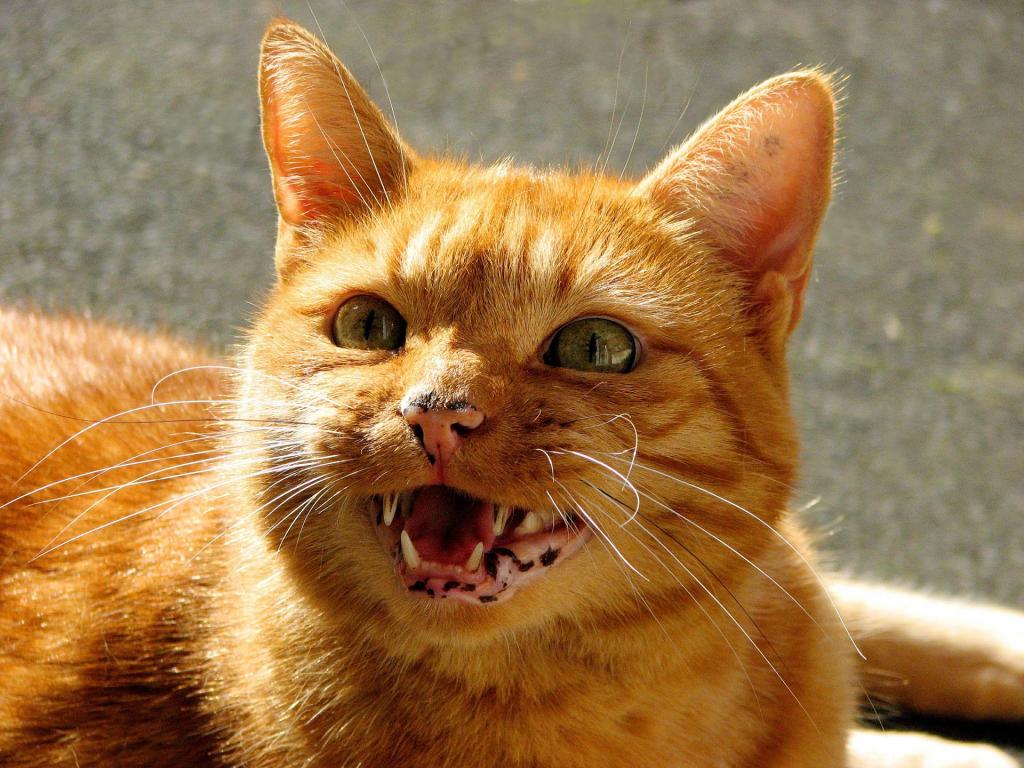
What does rabies in cats look like?
A rabid cat may exhibit unusual behavior changes and distinct physical symptoms. These are the things to watch out for.
- Atypical behavior. An infected cat may become less affectionate or unusually agitated and excited. You might also notice increased aggression.
- Drooling or foaming around the mouth. As rabies progresses, it affects the muscles around a cat’s mouth, which can result in drooling or foaming.
- Paralysis. In the late stages of the infection, cats can experience paralysis and eventually slip into a coma before they die.
How common is rabies in cats?
Rabies in cats is somewhat rare, but it’s still important to be aware of the symptoms just in case you ever encounter a rabid cat. The CDC says that about 250 rabid cats are reported each year. Almost all those cats are unvaccinated and contracted rabies after contact with wildlife, such as raccoons and skunks.
How long does it take rabies to show up in cats?
In cats, rabies has an incubation period that can range from two weeks to several months, if not years. There isn’t a way to test a live animal for rabies; the only available test requires a sample from the brain of a dead animal.
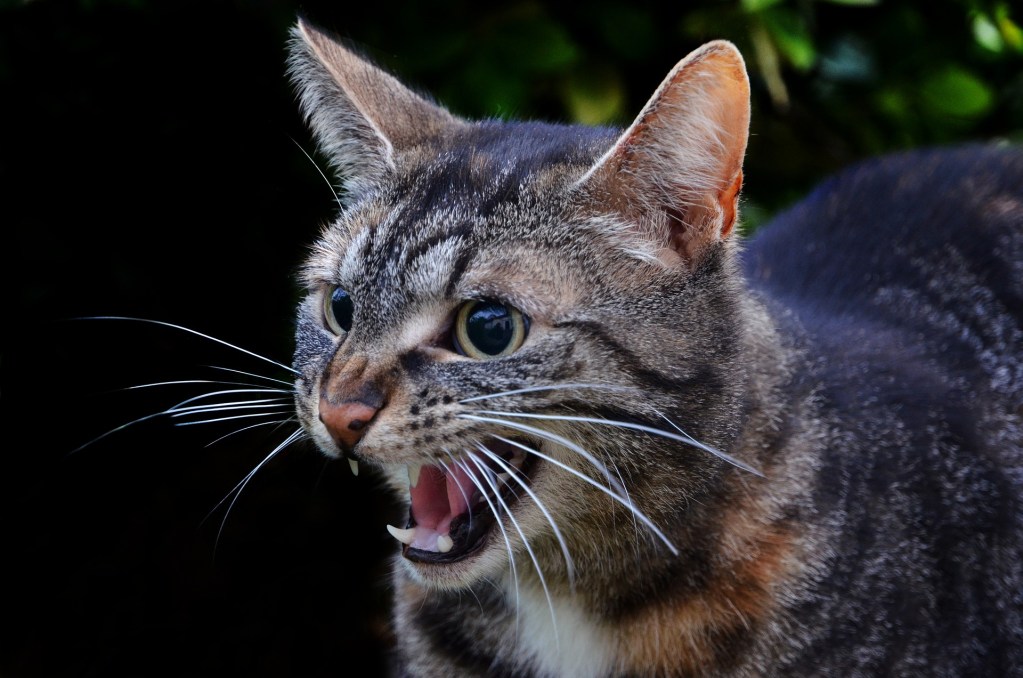
What to do if your cat is bitten
Call your veterinarian immediately if you know that an animal has bitten your cat. Your vet will likely clean the wound and booster your cat’s rabies vaccine to increase his protection against the virus. If your cat hasn’t previously been vaccinated against rabies but is known to have been bitten by a rabid animal, your vet might recommend euthanizing your cat or quarantining him for months to make sure that he hasn’t contracted the disease.
A bite doesn’t always transmit rabies, since the virus isn’t always present in the saliva. However, if your cat starts to exhibit symptoms, it’s almost certain that he will die. Your vet will probably favor euthanizing your cat to prevent his suffering and to keep the people in your home safe.
If an animal that might be rabid bites you, it’s important to wash the wound right away and call your doctor immediately. Chances are your doctor will recommend postexposure prophylaxis, including a series of rabies vaccinations.
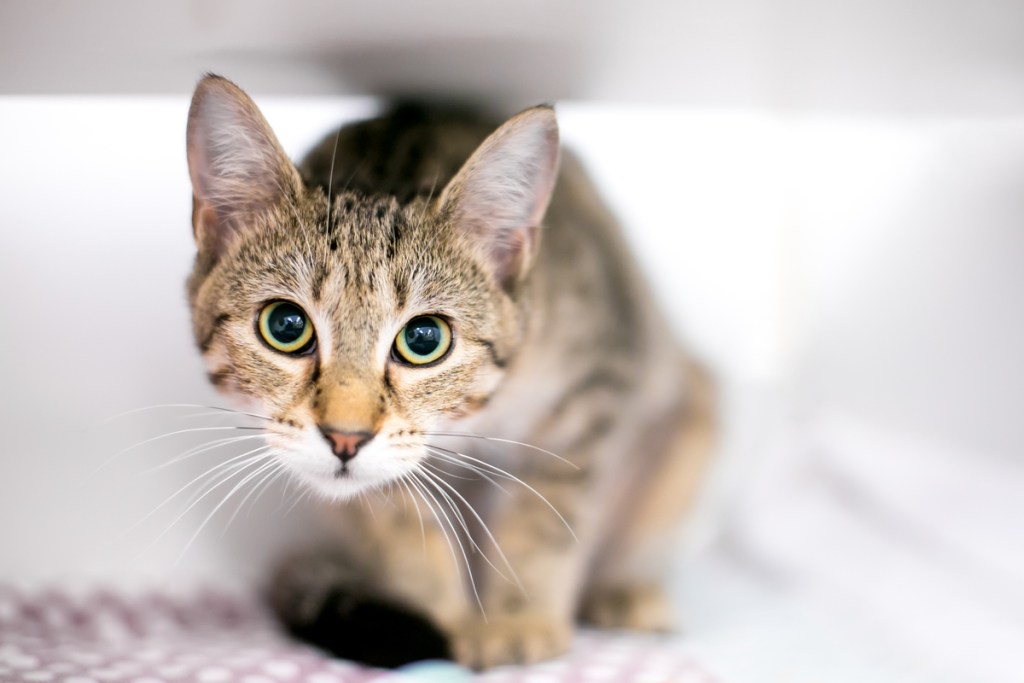
Keep all your pets up to date on vaccinations
Most states require pet owners to have their cats and dogs vaccinated against rabies. Regulations vary, so check with your veterinarian. In addition, many boarding and grooming facilities require animals to be vaccinated.
Rabies vaccines are both safe and effective, and there is no chance of your cat contracting rabies as a result of receiving them. Although mild side effects like lethargy and loss of appetite sometimes occur, these are typically brief.
Vaccines are essential to keep your cat safe and healthy. Talk with your vet if you’re having trouble affording your cat’s rabies vaccination. Financial assistance may be available, and many animal shelters offer free rabies vaccination clinics to the community.
Editors' Recommendations
- Wondering why cats chirp? Fascinating reasons why your cat chirps at birds (and you)
- How to cat-proof your balcony before the unthinkable happens
- There’s a totally normal reason cats throw up after eating grass – here’s why
- Your cat trilling is actually a good thing – here’s why
- What you need to know about crating a cat at night



